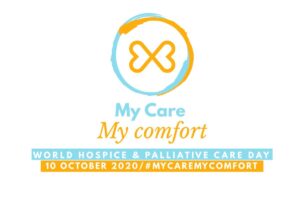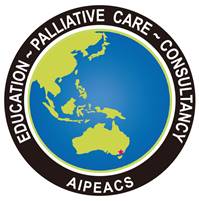

 日本語訳 監修 木下佳代子 ジェックス参与
日本語訳 監修 木下佳代子 ジェックス参与
-
世界ホスピス・緩和ケアデーは、2020年10月10日(土曜日)に開催されます。この特別な日は、世界中で「世界ホスピス・緩和ケアの日」を祝い、協力するために共に行動する日であります。今年のテーマは、「My Care, My Comfort」です。このテーマに沿ったものであれば、どのような活動もWHPCA website上にて次のリンクより広報することができます。
https://www.thewhpca.org/world-day-2020
皆さんの職場において緩和ケアの必要性につき注意を喚起するまたとない機会ではないでしょうか。
-
今月は、がん以外で、もう一つの、患者本人とその家族にとり緩和ケアの適応が効果のある症状について取り上げたいと思います:それは、運動ニューロン疾患(Motor Neurone Disease=MND) です。
MND患者のためになぜ緩和ケアを考えるのでしょうか。世界保健機構によると
「緩和ケアとは、生命を脅かす疾患による問題に直面している患者とその家族に対して、疾患の早期より痛み、身体的問題、心理社会的問題、スピリチュアルな問題に関してきちんとした評価をおこない、それが障害とならないように予防したり対処したりすることで、クオリティー・オブ・ライフを改善するためのアプローチである。」
MNDをこの定義の文脈で考えると次のようになります:
- MNDは、進行性の神経疾患で治療の方法がない
- 緩和ケアの関与は、症状が分かった時からすぐであるのが望ましく、それは予後の期間が短いからである
- 患者の終末期の介護についての希望、好みについて充分に理解しておくために、早い段階で、将来の介護についての決断につ
-
いて話し合うことが重要である。
- MND患者は、いろいろな症状を経験する、そして、それらは、病状が進行するにつれて悪化する。緩和ケアは、痛み、嚥下困
-
難、呼吸困難のような症状に対しての最適な症状管理として役立つものである。
- 緩和ケアは、精神的、心理的そして患者並びにその家族を支えるための総合的なケアを提供する。
- 死別に対する近親者へのサポートが必要である。
緩和ケア専門チームの介入は、患者や家族のニーズ、又は、病状経過によりいくつかのエピソードに分かれます。例えば、胃瘻造設や呼吸器が必要と診断されるときや終末期に認知症の兆しがあると診断されたときです。
MND患者にとって早い段階から緩和ケアの介入について話し合うことは、症状を効果的に管理することであり、そこでは、命の質(QOL)が中心となります。次に掲げるガイドは、大いに役立つ情報となるでしょう:
- - 終末期について話し合うこと
- - 事前の人生会議 (Advance Care Planning: ACP)
- - 人生会議 (ACP)チェックリスト
- - 身辺整理をする
- - 緩和ケアサービスの介入
- - 家族及び介護者たちへのサポート
-
オーストラリアからの一連のポッドキャスト(動画番組)は、老齢者介護施設やプライマリーケアに携わるスタッフ用に作成されたものです。それらは、我々がMNDの理解を深め、ケアの改善に役立つ情報を提供しています。
- ● 症状、診断、臨床確定についての紹介
- ● 分泌物管理と嚥下障害
- ● 呼吸と非侵襲的換気(人工呼吸器でないもの)
- ● MNDにおける前頭側頭型認知症
- ● 性的問題、MNDと緩和ケア
- ● 希望を維持しつづけること
-
上記のポッドキャストは、Google Play のApp Storeより無料でダウンロードできます。
-
MND オーストラリア協会は、患者、家族、医療従事者、そして、介護提供者のためにMNDの基本的知識について、また、MND患者の人生への影響についての理解を助ける訓練モジュール(学習単位)を含む素晴らしい資料を提供しています。
https://www.mndaust.asn.au/Get-informed/Information-resources.aspx -
MND患者や家族のために緩和ケアを検討することに関しては、多くのもっともな理由があります。あなたの興味ある分野により緩和ケアと運動ニューロン疾患の理解の促進に役立つ他の資料や記事を下記に示します:
1.運動ニューロン疾患における緩和ケア: 現況について? David Oliver, 2019
https://www.ncbi.nlm.nih.gov/pmc/articles/PMC6348498/
MND疾患の概要と症状管理について
2.MND疾患患者及び近親者を亡くした介護者のための緩和ケアの質的研究: Clare McVeigh et al 2019
-
https://bmcpalliatcare.biomedcentral.com/articles/10.1186/s12904-019-0423-8
-
3.運動ニューロン疾患:進展と挑戦
-
4.ALS患者のための日本における緩和ケア (筋委縮性側策硬化症)
-
日本語でのガイドラインや記事で緩和ケアやMNDについて皆さんに役立つ情報をご存知の場合、どうぞ私まで送ってくださいませんか。 次号にて皆さんに紹介したいと思います。
いつものことですが、皆さんの関心のある分野で追加の情報が欲しいとかのご希望があれば、私、julie@paliativeeducation.com までお知らせください。必ず取り上げることをお約束します。緩和ケアについてのあなたのお考え、経験について教えてください。お互いに学び合えると思います。
- では、次号でお目にかかります。ごきげんよう! ジュリー
- [事務局より]
-
直接、ジュリーさんに、メールを出しにくい場合は、ご遠慮なく、ジェックス事務局(nurse@jeccs.org ) まで、日本語で結構です。お待ちしています。
- Disclaimer: September 2020 免責条項:
- Australian International Palliative Education and Consultancy Services (AIPEACS) は、Julie’s Corner シリーズ内の内容につき正確な情報の提供に細心の注意を注いでいますが、特にある事柄についての専門的意見を提供するものではありません。このシリーズに含まれる情報は、独立した専門家の見解に取って代るものではありません。また、医療上の助言として利用したり、何らかの疾患の治療、手当、又は、予防のために使用されるものではありません。
- AIPEACSは、このシリーズにより提供される情報の利用、依存によるいかなる法的責任、怪我、紛失、損害については、責任は負いません
Australian International Palliative Education and Consultancy Services Pty. Ltd
Julie’s Corner: September 2020 (原文) [4月号より英文原文も掲載しています]
-
Reminder, World Hospice and Palliative Care Day will be held on Saturday the 10 October 2020. This special day is a unified day of action to celebrate and support hospice and palliative care around the world. The theme for this year is “My Care, My Comfort”. Any activities held to support the theme can be advertised on the World Hospice Palliative Care Alliance Website using the following link to https://www.thewhpca.org/world-day-2020. It is a great opportunity to highlight palliative care needs within your own workplace.
-
This month we will reflect on another non cancer diagnosis that may benefit from a palliative approach to care for both the patient and their family: Motor Neurone Disease (MND).
-
Why consider palliative care for MND patients? According to the World Health “ Palliative care is an approach that improves the quality of life of patients (adults and children) and their families who are facing problems associated with life-threatening illness. It prevents and relieves suffering through the early identification, correct assessment and treatment of pain and other problems, whether physical, psychosocial or spiritual. Palliative care is a crucial part of integrated, people-centred health services, at all levels of care: it aims to relieve suffering, whether its cause is cancer, major organ failure, drug-resistant tuberculosis, end-stage chronic illness, extreme birth prematurity or extreme frailty of old age.” (accessed 10/9/2020)
If we consider MND in the context of this definition, we know that:
- – MND is a progressive neurological condition that is not curable
- – Palliative care involvement is often appropriate at time of diagnosis due to the short prognosis
- – it is important to have early discussions around future care decisions to ensure we understand patient’s preferences for end
- of life care
- – MND patients experience varied symptoms that will worsen as the disease progresses and palliative care will support optimal
- symptom management for example pain, dysphagia and dyspnoea
- – Palliative care provides holistic care including spiritual and psychological care and support for both the patient and the family
- – Bereavement support for families is required
-
The involvement of specialist palliative care teams can be episodic depending on the patient and family needs and disease trajectory. For example; it may be at diagnosis, when there is a need to make decisions related to gastrostomy or ventilator support, when patients experience cognitive changes and at end of life.
-
-
Discussing the option of referral to palliative care early in the disease for MND patients will ensure symptoms are managed effectively and there is a focus on quality of life. The following guide is a great resource which covers:
- – Talking about end of life
- – Advance care planning
- – Advance care planning checklist
- – Putting affairs in order
- – Involving palliative care services
- – Supporting family and carers
-
A series of podcasts from Australia have been developed for staff working in aged care or primary care. They provide useful information to help us better understand MND illness and improve our care. The podcasts include
-
- ● Presentation, diagnosis and clinical decision making
- ● Secretion management and dysphagia
- ● Respirations and Non Invasive Ventilation
- ● Frontotemporal dementia in MND
- ● Sexuality, MND and palliative care
- ● Maintaining hope.
All of the podcasts can be downloaded for free from the Apple App Store of Google Play. https://www.podbean.com/media/share/pb-bvcw9-d5c1a3?utm_campaign=w_share_ep&utm_medium=dlink&utm_source=w_share
-
Motor Neurone Disease Australia also provides some great resources for patients, families and health professionals and service providers including training modules that assist us with developing a basic understanding of MND and the impact of MND on an individual’s life. https://www.mndaust.asn.au/Get-informed/Information-resources.aspx
We can see that there are lots of good reasons to be considering palliative care for our patients and their families with Motor Neurone Disease.
Other resources / articles to further our understanding of palliative care and Motor Neurone Disease depending on your interest include:
- 1. Palliative care in motor neurone disease : where are we now,?, David Oliver, 2019
- https://www.ncbi.nlm.nih.gov/pmc/articles/PMC6348498/
- Provides an overview of MND disease and symptom management
- 2. Palliative care for patients with motor neurone disease and their bereaved carers: a qualitative study, Clare Mc Veigh et al, 2019
- https://bmcpalliatcare.biomedcentral.com/articles/10.1186/s12904-019-0423-8
- 3. Motor neurone disease: progress and challenges, Dharmadasa et al, 2017
https://www.ncbi.nlm.nih.gov/pmc/articles/PMC6348498/ - 4. Palliative care in Japan for individuals with Amyotrophic Lateral Sclerosis, Chapter 5, Mitsuko Ushikubo, 2017
https://www.researchgate.net/publication/320266193_Palliative_Care_in_Japan_for_Individuals_with_Amyotrophic_Lateral_Sclerosis
If you know of any specific Japanese guideline’s or articles that would be valuable for others to read in relation to palliative care and Motor Neurone Disease, please forward these on to me and I can share these in the next update.
As always, if you have any particular areas you would like additional information about please forward your request to julie@palliativeeducation.com. We will ensure this is discussed. Please let me know how you are going as we would enjoy sharing your thoughts and experiences on palliative care, so that we can continue to learn from each other.
I am looking forward to our next month’s catch up, take care and stay safe Julie
